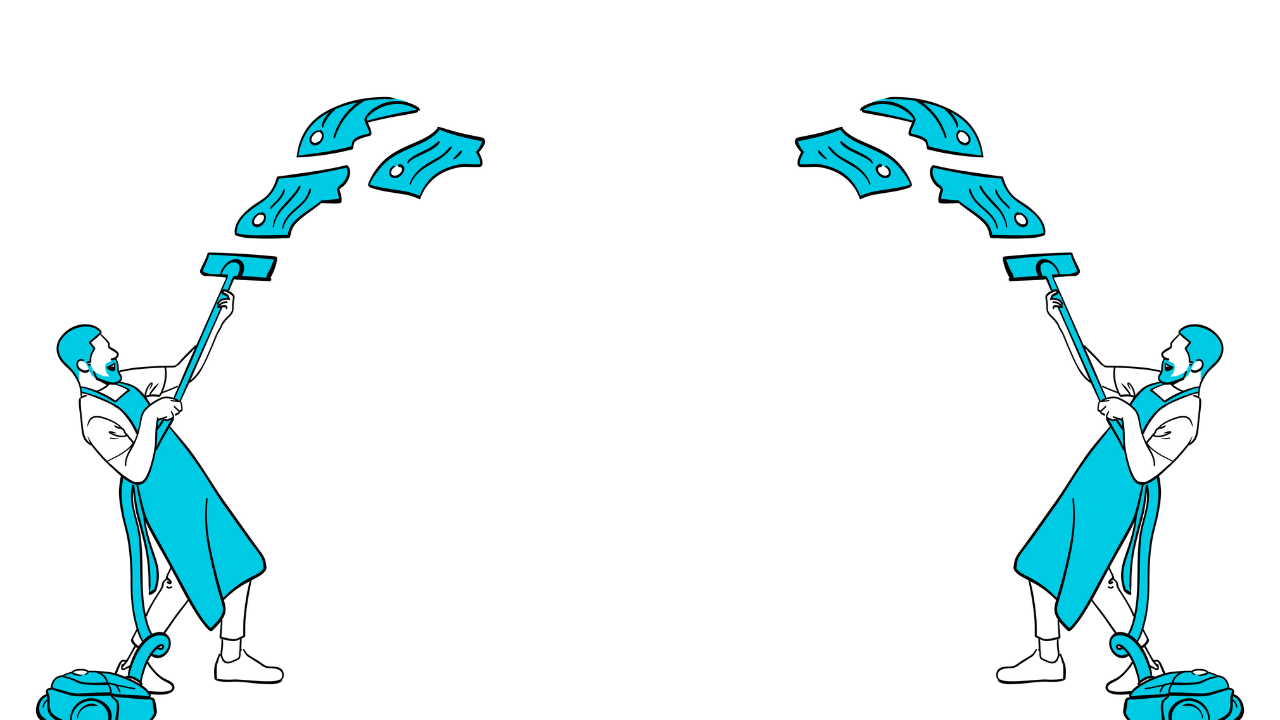If you’ve ever worked with inherited home sales, you know how emotionally charged the process can be. Not only has the person selling recently lost a loved one, but there are often multiple players involved — some of whom don’t agree on what should be done with the home.
Over the last few weeks, we’ve talked with Authorify members who have worked in the inherited homes niche. We gathered their advice on dealing with highly emotional clients and ensuring the sale goes smoothly from start to finish.
Working with Emotional Clients
“It's just such a unique experience whenever you're working with them because it's one of those bittersweet things you’ve got to walk through,” says Marie Surratt, an agent from Tampa. “You listen to them talk about all the times that they had in that house and everything. So it's kind of like being empathetic and being there to support them and try to celebrate the life that they had and just kind of walk through and listen to them. And if you listen and relate — that's actually how I got one of the listings is because they're like, ‘Oh, you're the only one that is actually letting us talk about everything that's happened.’ And I think that's important for them to be able to get that closure.”
Marie says helping people through an inherited home sale is a form of healing, and she doesn’t take that responsibility lightly.
“I'm looking at it as like maybe taking one of those issues off so that a family can come back together, you know, because when you have the divide and trying to figure out what to do with this house and how to do this, and ‘Oh, well, why did mom say that they get to be in charge? And, you know, you have all those different emotions that — I just find that very rewarding as part of my job.”
Tiffany Hudson, an agent from Pembroke Pines, Florida, says securing inherited listings takes a modified approach.
“You know, as agents, we love to talk, and we have, you know, our script in our heads and everything else. But it's about being quiet and listening to the client's needs and coming from contribution. And if we put that in our mind first and foremost, all the time, then we'll always have happy clients.”
Home Pricing
Marie says one of the most challenging parts of listing an inherited home is attempting to take the emotion out of price setting.
“I would tell them, ‘Yeah, it's priceless,” ... but what you're trying to put a price on are your memories that you've had here. And you have those memories to take with you — like that's the one thing no one can take away. Realistically, if a tornado came through, if we had a hurricane and this house was wiped out, what would you have to spend to put it back? And that's what you're looking at when you want to talk about the value. And I also tell them to look at it — you know, the market value is only what somebody is willing to pay for it.”
David Olson, an agent from Cold Springs, Minnesota, says it’s important to approach pricing objections with solid facts.
“I just show them the data for what the type of the property has and how that's sold. So if they grew up in the house in the 70s or 80s, and they have certain memories there, I still have to show them properties that were built in the 70s and 80s and what they're selling for.
“So the value is the dollar of the house and not their intrinsic value that the family members might have. ...That's just the way it works. And they just have to start understanding that, but it might take a week or two for them to come to that realization.”
Preparing the Home for Sale
One of the hurdles Tiffany frequently has to overcome is getting clients to separate emotions from the home so they can properly prepare it for sale.
“What I normally do is I will say to them, envision a buyer coming into this house — you know, buyers buy on emotion. So we really want to neutralize the space so that they can envision themselves and their family in here. We want to put away personal items, photographs, memorabilia, and I always say to them, it's a good idea to start packing them now. And I’ll walk the house with them. I normally do like a free staging consultation. Sometimes, it's good to have a neutral party come in if you don't feel comfortable with having that conversation yourself. Because it definitely helps to get the seller on board and help them to understand the process of neutralizing and making it less personal because especially with older sellers and people that are dealing with grief, you know, everything is personal to them. And that space that does hold so much memories.”
Marie explains to her clients that any updates and adjustments they are willing to make to the home will impact the amount of money they receive for it.
“If you want this for your house, then you need to do X, Y, and Z. If you just want to paint and do a few things, you can get this for the house. If you want to sell it just as it sits and do nothing, this is what we're going to get. So you have a range to choose from. And then I let themtalk about it, to decide. Top houses are immaculate. Like you're going to have to paint, maybe update the flooring, update the countertops and put, you know, five or $10,000 into it to get this price. If you look around and you go, well, you know, the baseboards need painting, the walls, need painting, and just really give it all a good cleaning, scrub the windows and everything. You're going to spend maybe $1,000/$2,000. We can price it right here.
Managing Multiple Players
As we previously mentioned, there are often multiple parties involved in an inherited home sale. It’s important to understand each of their roles and appeal to them.
“I would say, just really be prepared to be a great listener, to be able to hear the emotions and hear what they're actually saying and how they're feeling so you can make the connection and help them start,” Marie says. “For the most part, you might have one or two of them that are just looking at a number sense, like let's get rid of this house and let's just move on. Especially if you have one family member that was there taking care of someone or that was there all the time and someone that lives out of state.
“So you have to be able to put different hats on whenever you're there. Listening will help you figure out how to deal with each person. And I mean, and they're not all good. Not all family members get along. So, you know, it's trying to bridge that gap and trying to get them to all come to an agreement because when you can't get them all to come to an agreement, you know, there's no deal. Because it's all or none, not a majority rules.
Ed Hru, an agent who specializes in divorce and probate listings, understands the dynamic of an inherited sale because he went through one himself.
“I know that when my parents died, there was friction between the three sons. One of them didn't like the fact that another one was the personal representative and made choices. He didn't like those choices. So even with our own family, we had disagreements on everything. You have people that don't need the money and you have people that really need the money. So there might be a difference between somebody who really wants to sell and somebody who says, no, let's wait until the market gets a little better.”
Finding Inherited Leads
Over 1.1 million homes are inherited each year, and many of them are listed shortly thereafter.
The best way to find inherited home listings is through probate court records, which are most likely on your county courthouse’s website. You can usually find the information with a simple Google search, like “Jacksonville Florida probate case search.”
Once you’ve found the site, don’t hesitate to reach out to a county clerk to help you navigate it.
If you absolutely cannot find the probate court records in your area, there are other options.
Option #1: Buy the leads from a paid lead provider.
Search Google for inherited lead providers in your area. For example, search “County Name ST Probate Leads.”
We found a few companies that will provide you with probate leads. We have no experience using these ourselves, but you may want to try them out or read reviews from people who have. Those companies are Probate Leads (https://probateleads.com/) and US Probate Leads (https://usprobateleads.com/.)
Option #2. Find inherited homes by searching for the word “Estate” in your local property records.
Most counties have property record information available on the Property Appraiser or Tax Assessor’s website. If that isn’t available, you may be able to get the information from your MLS or a company like Property Shark.
Once you gain access to the database, search for the word “Estate” in the owner’s name field. The search will usually return inherited homes that are owned by an estate.
Option #3. Find inherited homes using obituaries.
You can find obituaries in your local newspaper or on websites like Legacy.com, Tributes.com, or Funeral.com.
Qualifying Leads
When you find a lead, it’s important to qualify it:
- Verify that the person who passed away owned real estate.
- Check that the person who passed away was the last remaining spouse.
Find the Decision Makers
When you’re hoping to list an inherited home, you want to find the decision maker who has the authority to sell the house. Usually that’s a Personal Representative, the Executor of the Estate or an heir.
There are several different ways to do that:
- Get the information from the probate court case record. Usually, the petitioner is the personal representative.
- Get the information from the obituary. You’ll want to look for the part that says “survived by” or something similar.
- Find out who is paying the property taxes. They’ll usually know if the owners want to sell.
Use Google, Facebook, and other publicly available information to find out who to contact.
If you can’t find anyone using one of those methods, mail your book to the deceased at their address. One of the heirs is bound to stop by and check the mail.
Reach the Decision Makers
Once you find the Personal Representative or Executor, you’ll want to find their mailing address and phone numbers.
You can usually get their mailing address from the probate court case, but if that doesn’t work, there are some other ways you may be able to find it.
Search for the Personal Representative’s address on WhitePages.com or in your county’s property records (this won’t work if the person lives out of the area).
Once you have their mailing address and know where they live, you can search for their phone number on Whitepages.com or Intelius Premier. Intelius Premier is the best source because they provide cell phone numbers and don’t try to sell you unnecessary reports. It costs $20 a month, but you’ll save a lot of time using their service.
Mail Your Book
Your book is the best way to show inherited leads you have the expert touch to guide them through a difficult sale. We have a book dedicated to working with inherited homeowners.
Send your book in an envelope, along with a cover letter explaining why you’re reaching out. Keep following up until you reach the right people and get someone to speak with you.
We’ve found that when you send out your book first, it turns a“cold call” into a “warm call” — so when you follow up a week or two later, the leads are friendly and receptive.
Ed just recently started using his books to win inherited listings.
“I handed it out to several people that I knew, and it's a good response. They get information that they wouldn't necessarily otherwise get as easily as right there for them because if they don't have to fight for it. It's just good information.
“I will say this to anybody who is going to get books, don't be afraid to add things to it. There's absolutely nothing wrong with adding an extra chapter if you know there's something they need to know about it.”



.png)




